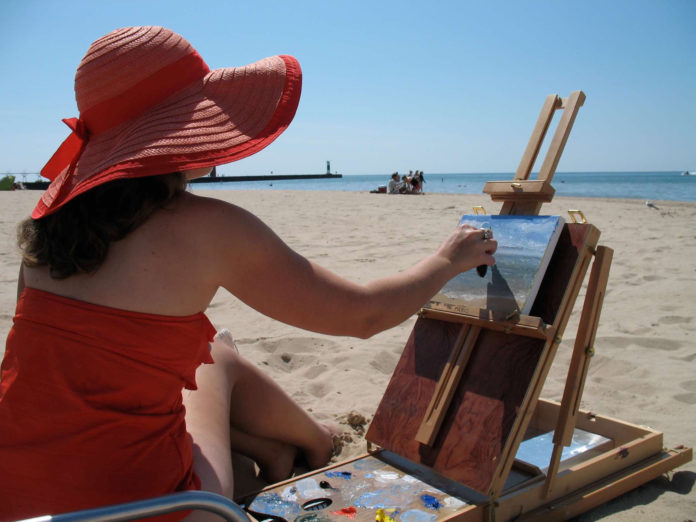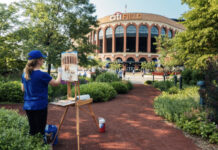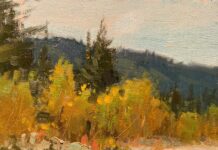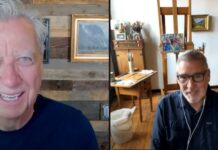“Working through adversity with persistence, patience, and grace can make us better artists – and better humans, too.”
By Maggie Capettini
I started plein air painting in 2011. I took a weekend workshop and was hooked. Painting outdoors was exhilarating, a true adrenaline rush but at the same time, I could melt into the landscape in an experience of deep mindfulness. Plus, it suited my lifestyle – living in a small duplex with a one-year-old, a three-year-old, and a ninety-pound lab, I did not have room to have a studio, and I did not feel comfortable leaving oil painting materials set up in a corner of a room.
So, painting outdoors was the perfect solution: my painting kit could remain locked away at home, ready to be taken out into my “studio of the world”; a painting could (must!) be completed in one session (heaven knows it otherwise might never have been finished at all); and I was able to establish a consistent painting practice to improve my skill and develop my style.
Sometimes I manage to find myself in the field without an essential piece of equipment. But rather than give up and go home (as is so tempting to do), I find a way to work around my omission and still get a painting done. After all, when we have limits imposed on us, whether they are intentional – such as painting with a limited palette – or accidental – say, forgetting your paint brushes – we have the opportunity for unexpected and unique growth. Sometimes this growth shows itself in our skill; other times, it is reflected in our style. Either way, working through adversity with persistence, patience, and grace can make us better artists – and better humans, too.
The first and most notable of the “essentials” I forgot to bring, as alluded to above, was during a 2012 family road trip to South Haven, Michigan; I was so excited to be able to paint on the inspiring shores of Lake Michigan. But upon arriving, I realized I had forgotten to pack my brushes. Oh no! I couldn’t just run home and get them, and I did not know of any place to buy good brushes locally. I tried a cheap craft set from the local big-box store, but they weren’t made for oils, and they shed intolerably.
I was presented with a challenge to my comfort zone: either don’t paint, or paint using the few knives I had brought along. I chose to persist: to paint. Out of this challenge arose my love for painting with knives. My own personal style of painting alla prima with knives has developed as a direct result of this instance of forgetfulness.
As the years have passed, I have forgotten many items in my kit. One time, I somehow managed to be in the field with everything except my pochade box. That solution took a few minutes to figure out, but my ultimate fix was to layer plastic bags on a nearby picnic table and prop my board against the small case in which I carry my paints. That was possibly my least successful hack of all-time – my knife snagged, the paint did not move well on the bag, and my view was limited by the location of the picnic table. But, I was still able to paint, despite being inadequately prepared.
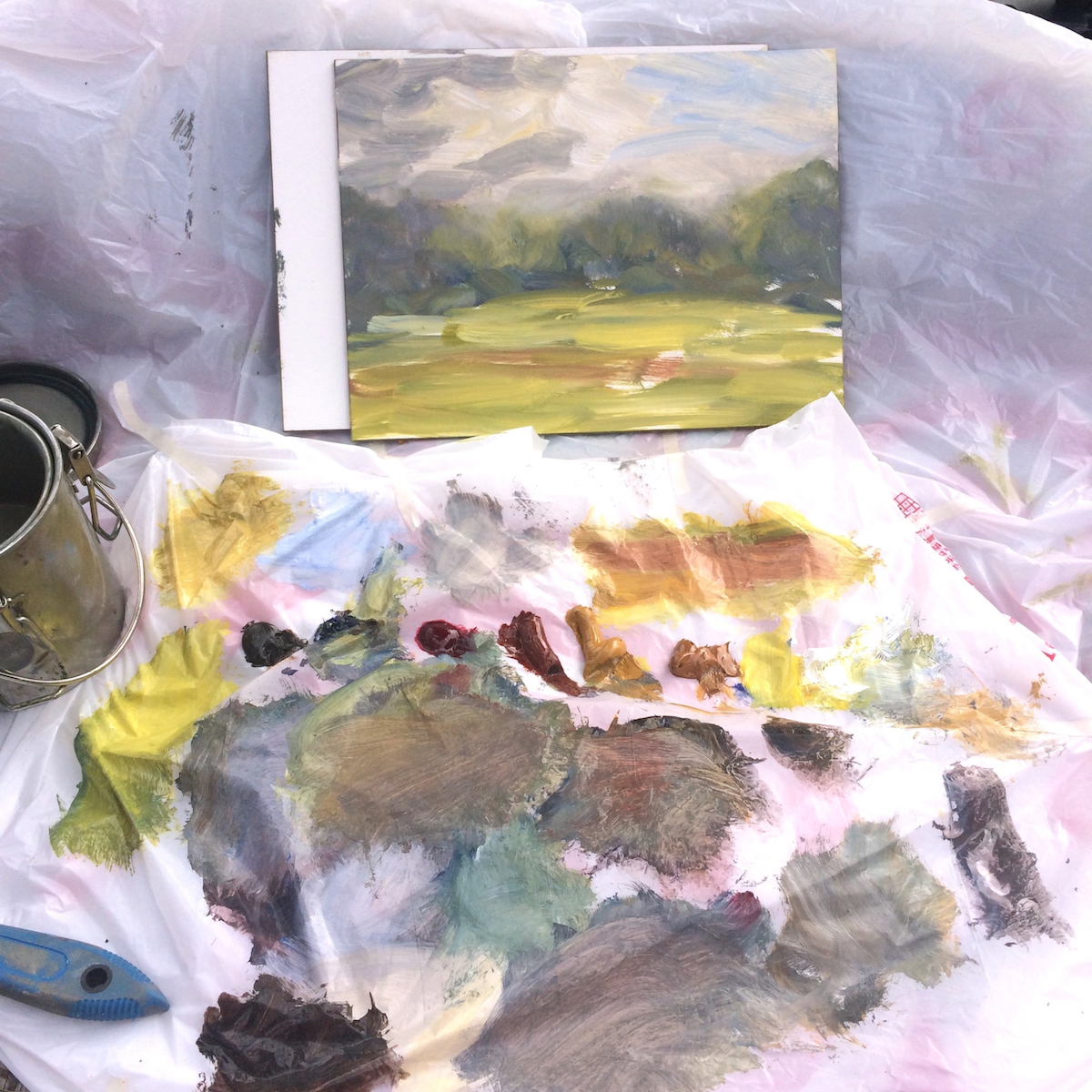
Other omissions have smaller impact. Forgot a bag for garbage? Stuff it in the paper towel tube. Forgot (or ran out of) white paint? Figure it out with what you have. Forgot your tripod? Find a seat and balance your pochade box on your knees. And so on. I probably have forgotten just about anything one can forget, though, thankfully, I have never left all my paint at home (knock on wood!).
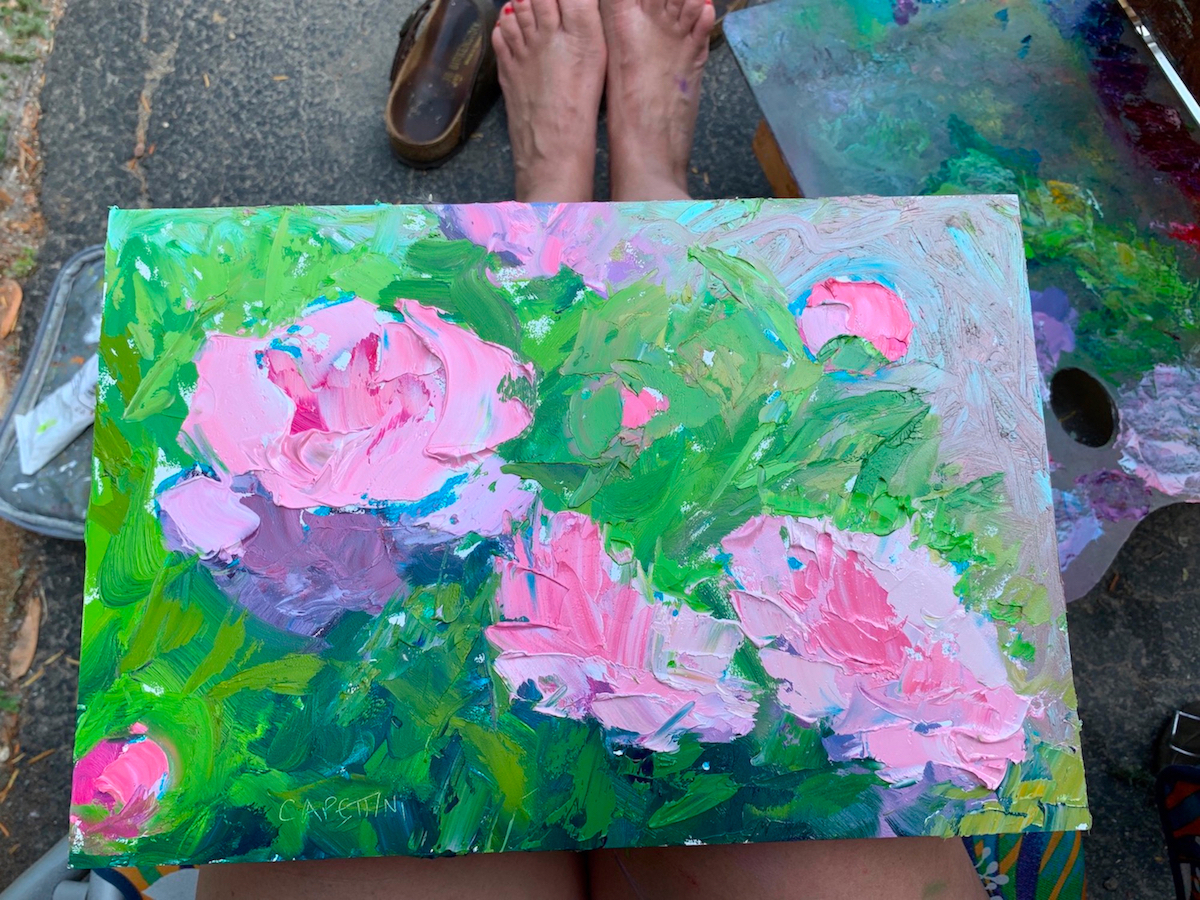
Most recently, I set up one morning at The Morton Arboretum to paint a sea of native yellow flowers, when I realized I did not bring a roll of paper towels. For a knife painter, who is constantly wiping paint off the knife, this was almost a deal-breaker. Desperately searching my bag again, I found two or three loose paper towels I could use. Next, I checked the car and found a stack of fast-food napkins, tucked away for future spills – thank goodness! In all, I had maybe ten napkins and three towels, and once those ran out, I would have no other options – I would have to be done painting. Knowing this, I worked more strategically, and I was able to bring the painting to a stopping point I was reasonably happy with, and just in the “napkin” of time – I used every last one I had scrounged up to get to the finish.
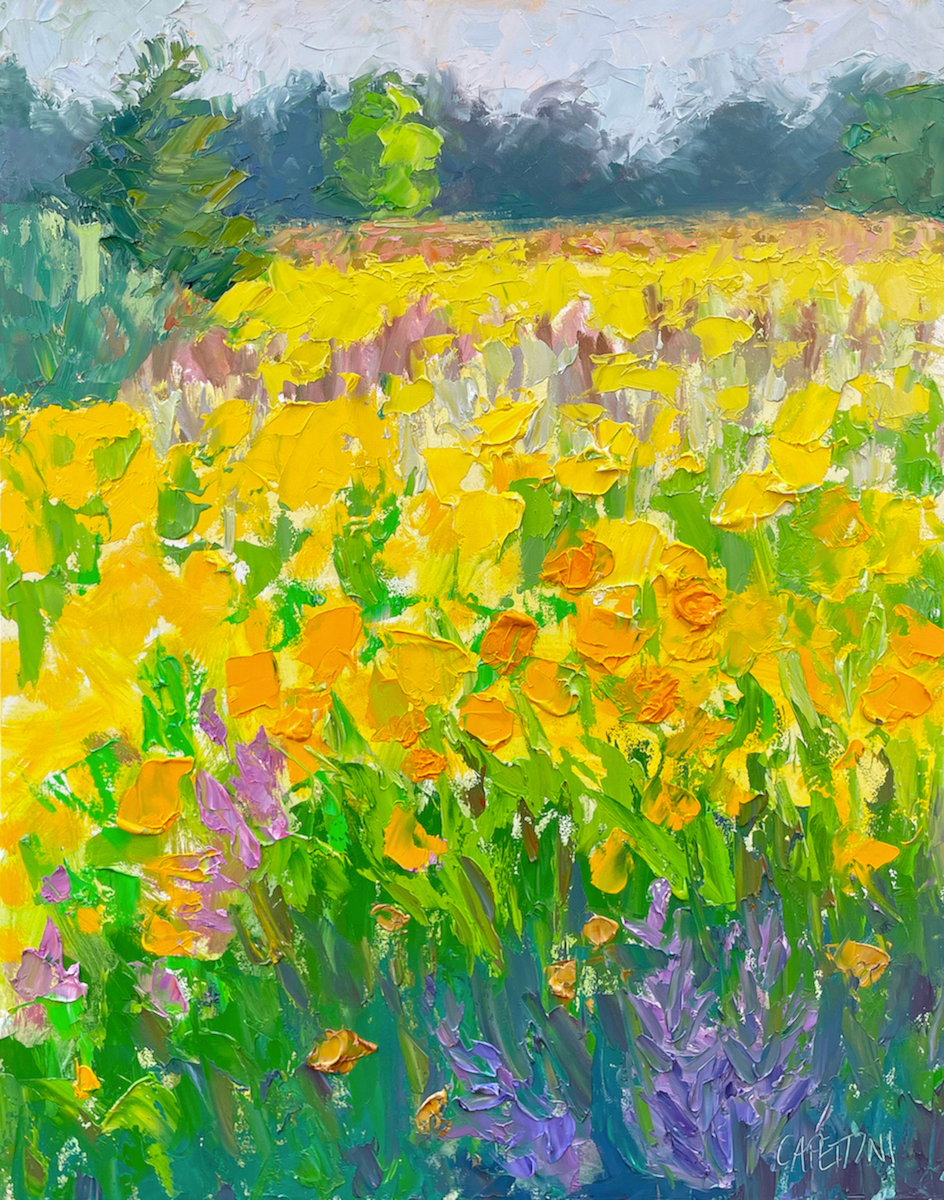
Plein air painters create within a unique set of circumstances, and every outing brings new trials – from the landscape, mostly; from time to time, they are unintentionally self-imposed. These challenges can be frustrating. While it can seem easier to just head home and try again another day, if we persist, we give ourselves the chance to think creatively, to expand our flexibility, to work through adversity, and, occasionally, we end up with a really good painting. If nothing else, we end up with a really good story, and sometimes, that’s enough.
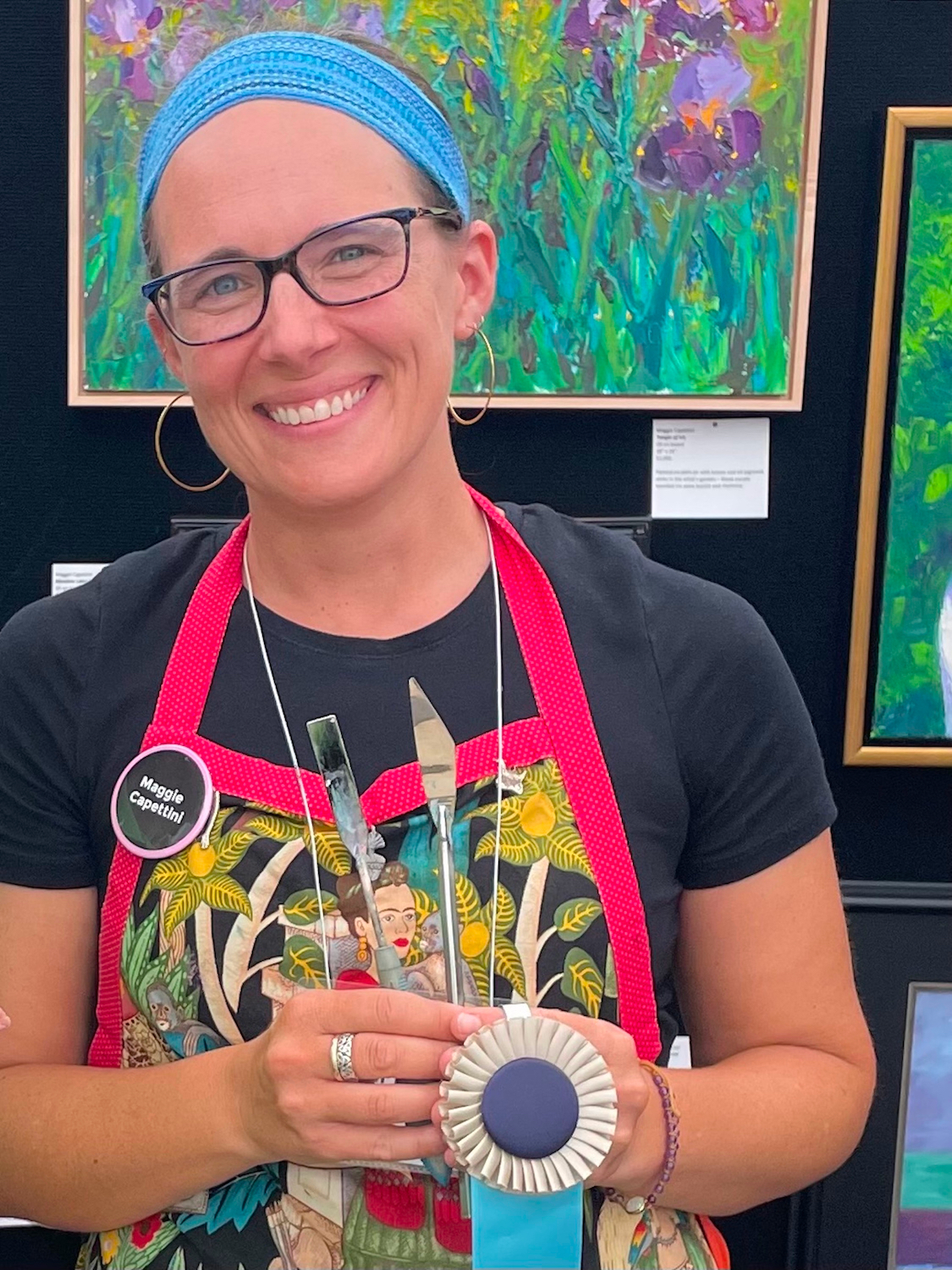
About the Artist: Maggie Capettini is an award-winning plein air oil painter in the western suburbs of Chicago. Her works are held in museum/gallery collections in Batavia, Warrenville, and West Chicago, Illinois, as well as private collections in the United States and internationally. She holds a Bachelor of Arts in Studio Art and a Master of Arts in Teaching. Nature inspires much of Capettiniʼs work, in both representational and abstract expressions. She paints en plein air and from life whenever possible, including in her own gardens where her motto is “plant what I like to paint.” Her gardens are filled with iris, peonies, and spring bulbs – but, so far, she has been unable to protect sunflowers from hungry local critters.
Connect with Maggie Capettini:
www.maggiecapettini.com
@maggiepaints on Instagram and facebook
@maggiecapettini on twitter
Visit EricRhoads.com to find out all the amazing opportunities for artists through Streamline Publishing, including:
– Online art conferences such as Plein Air Live
– New video workshops for artists
– Incredible art retreats
– Educational and fun art conventions, and much more.
> Subscribe to Plein Air Today, a free newsletter for artists
> Subscribe to PleinAir Magazine so you never miss an issue

